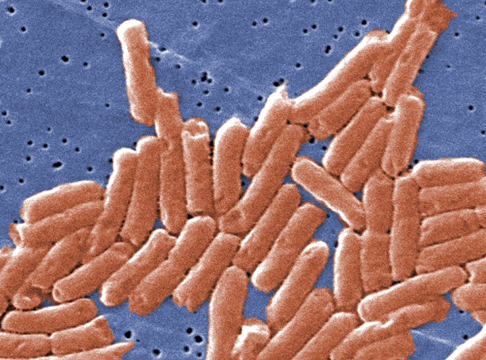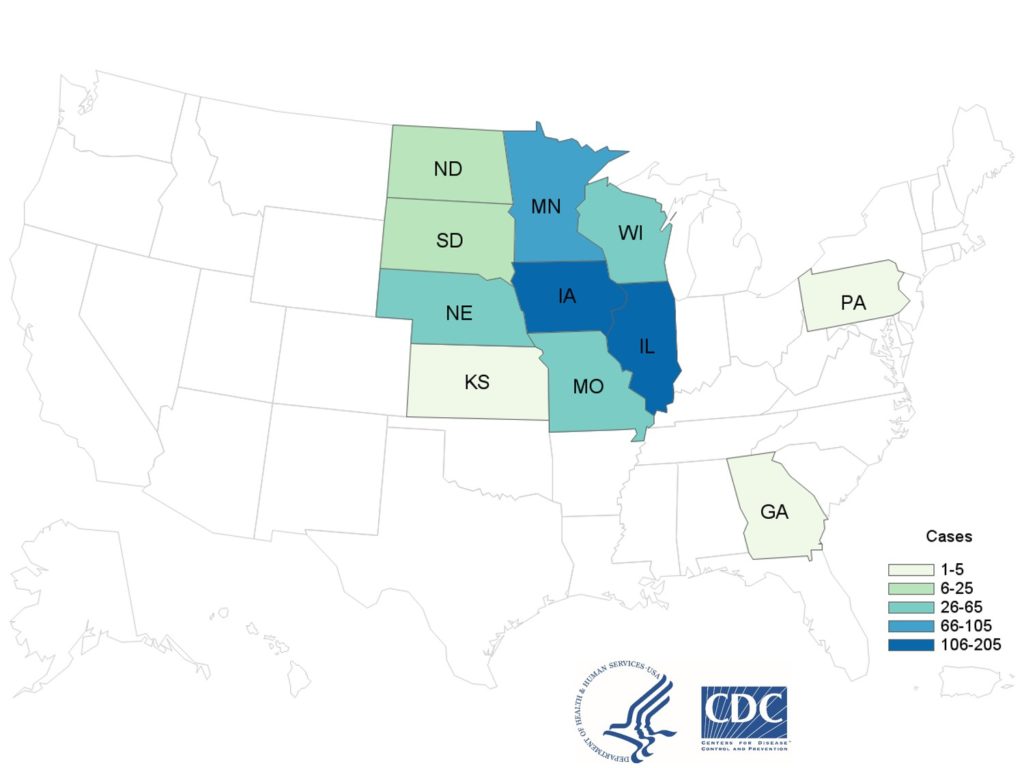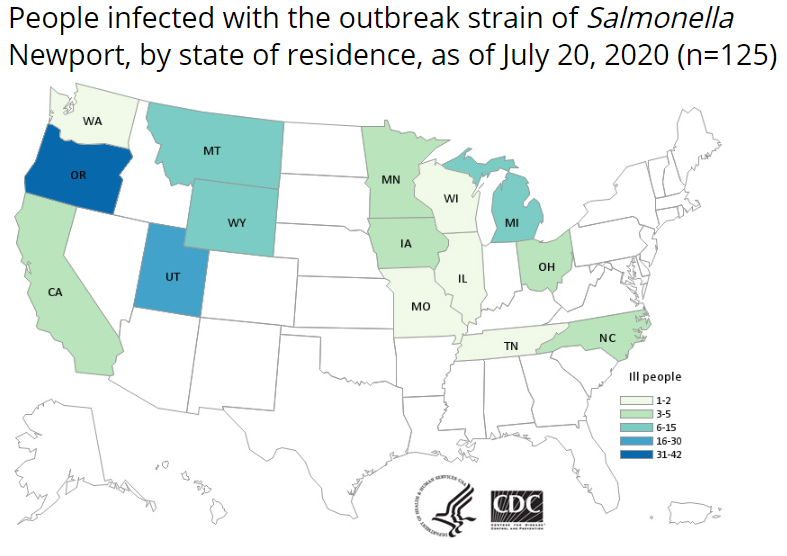The public Health Agency of Canada has notified the public that as of July 24, 2020, there have been 59 confirmed cases of Salmonella Newport illness linked to an outbreak in the following provinces: British Columbia (23), Alberta (31), Manitoba (3), Ontario (1), and Prince Edward Island (1). Individuals became sick between mid-June and mid-July 2020. Out of 28 people, for whom information is available, six individuals have been hospitalized. No deaths have been reported. In the US, the CDC is also investigating an outbreak of Salmonella Newport illnesses that have a similar genetic fingerprint to illnesses reported in this outbreak. Investigators in Canada and the US are collaborating to exchange information to identify the source of the outbreak. @ https://www.canada.ca/en/public-health/services/public-health-notices/2020/outbreak-salmonella-infections-under-investigation.html
An outbreak of Salmonella infections linked to an outbreak in the United States is under investigation.
ruth
As of July 22, 2020, a total of 641 people with laboratory-confirmed Cyclospora infections associated and who reported eating bagged salad mix before getting sick have been reported from 11 states: Georgia (1), Illinois (198), Iowa (195), Kansas (5), Minnesota (73), Missouri (57) Nebraska (55), North Dakota (6), Pennsylvania (2), South Dakota (13) and Wisconsin (36). The ill person from Georgia purchased and ate a bagged salad product while traveling in Missouri. 37 people have been hospitalized. No deaths have been reported. The infection is linked to salad products that were made by Fresh Express containing iceberg lettuce, red cabbage, and carrots. The products were produced by Fresh Express for retail store brands sold at ALDI, Giant Eagle, Hy-Vee, Jewel-Osco, ShopRite, and Walmart. @ https://www.cdc.gov/parasites/cyclosporiasis/outbreaks/2020/
CDC and federal, state, and local public health partners are investigating an increase in reported cases of Cyclospora infection (cyclosporiasis). Reports of cases tend to increase during summer months in the United States.
ruth
Hostess Brands, LLC, headquartered in Lenexa, Kansas, and operates bakeries in Emporia, Kansas, Chicago, Illinois, Columbus, Georgia, Indianapolis, Indiana, and through its Voortman Cookies Limited subsidiary, Burlington, Ontario. The company recalled certain Hostess® Raspberry Zingers® because the product may develop mold before the best by date. The recalled products include Hostess Raspberry Zingers Multi-Pack fresh, Multi-Pack frozen, Single-Serve fresh, Single-Serve frozen, and Single-Serve grocery 3 counts. The products were sold to mass merchandisers, grocery stores, distributors, dollar and discount stores, and convenience stores throughout the United States. @ https://www.fda.gov/safety/recalls-market-withdrawals-safety-alerts/hostess-brands-llc-issues-voluntary-recall-certain-hostessr-raspberry-zingersr-due-potential-mold
Hostess Brands, LLC (“Hostess Brands”) is voluntarily recalling certain Hostess® Raspberry Zingers® because the product may develop mold prior to the best by date.
ruth
The CDC announced the investigation of a rapidly growing outbreak of Salmonella Newport, with 125 people infected from 15 states. Twenty-four hospitalizations have been reported and no deaths. The source of the outbreak is unknown. Whole Genome Sequencing showed that bacteria isolated from ill people were closely related genetically. Therefore, they share a common source of infection. As of July 20, 2020 infections were found in the following states: California (3), Illinois (1), Iowa (3), Michigan (12) Minnesota (3), Missouri (2), Montana (11), North Carolina (3), Ohio (5), Oregon (42), Tennessee (1), Utah (28), Washington (1), Wisconsin (1), and Wyoming (9). Of 72 ill people with information available, 24 hospitalizations have been reported. No deaths have been reported. On July 10, the CDC’s PulseNet identified the outbreak of 13 Salmonella Newport infections in three states. Over the next 10 days, the outbreak rapidly grew to 125 infections in 15 states. @ https://www.cdc.gov/salmonella/newport-07-20/index.html
Read about CDC’s outbreak investigation of Salmonella Newport infections – July 2020




